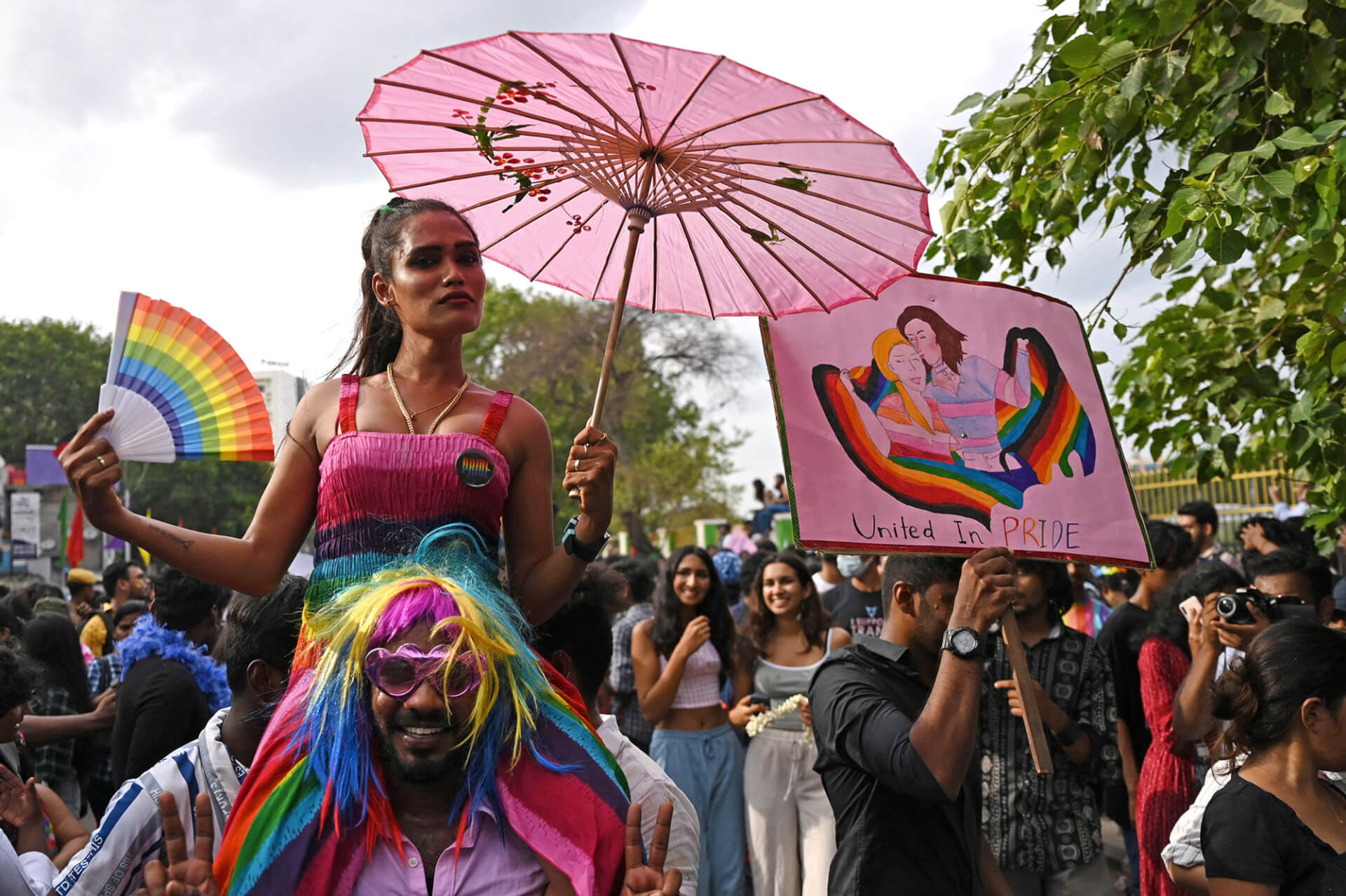The Indian government on Sunday opposed a petition permitting same-sex marriages, saying that it is incompatible with the concept of the “Indian family unit” that comprises “a husband, a wife, and children.”
Overview
The central government highlighted that the Indian family presupposes “a biological man as a ‘husband’, a biological woman as a ‘wife’ and the children born out of the union between the two.”
The affidavit presented before the Supreme Court for the matter, which is scheduled to be heard on Monday, said that even as same-sex couples were allowed to live together and have sexual relations, the concept cannot be equated to an Indian family.
[BREAKING] Central government opposes same-sex marriage plea in Supreme Court; says Indian family concept involves biological man and woman
— Bar & Bench (@barandbench) March 12, 2023
report by @DebayonRoy #SupremeCourt #SupremeCourtOfIndia #LGBTQ https://t.co/5Kpgpczj11
The government said the validation of same-sex marriages would cause “complete havoc” in the existing personal law framework.
The government noted that extant concepts of marriage, including the “degrees of prohibited relationship”, “conditions of marriage”, and “ceremonial and ritual requirements”, are codified through personal laws that presume a union between a man and a woman. It further said that the existing definitions are “socially, culturally, and legally ingrained” and should not be “disturbed or diluted by judicial interpretation.”
In this regard, the affidavit said that the petition would “change the entire legislative policy of the country,” which is rooted in “religious and societal norms.”
It claimed that the recognition of same-sex marriages will have several repercussions on rights and liabilities, such as under the Domestic Violence Act, which is still incompatible with the idea of same-sex marriages.
#BREAKING Central Government opposes pleas in #SupremeCourt seeking recognition of same-sex marriage.
— Live Law (@LiveLawIndia) March 12, 2023
Decriminalisation of Section 377 IPC cannot give rise to a claim to seek recognition for same-sex marriage, Centre says in counter-affidavit.#SupremeCourtOfIndia #LGBT pic.twitter.com/QOMwUqyL2i
In conclusion, the government demanded the apex court to reject the petition filed in favour of LGBTQ+ couples.
The apex court will convene for this matter on Monday. If it takes a stand in support of same-sex marriages, India will replace the US as the largest democracy to recognise LGBTQ+ unions.
Indian Laws on Marriage
In India, marriages are legally governed by codified personal laws such as the Hindu Marriage Act, Christian Marriage Act, Muslim Marriage Act, and Special Marriage Act. None of these have any references to same-sex marriages and specifically deal with marriages between a man and a woman.
map of same sex marriage legality in asia
— ian bremmer (@ianbremmer) March 7, 2023
(just a map of taiwan) pic.twitter.com/BdxS0MiHCF
Decriminalisation of Section 377
In 2018, the Indian Supreme Court struck down parts of Section 377 of the Indian Penal Code, which were used by authorities to target homosexual couples in India. This came as a major relief for the LGBTQ+ community, which the police and vigilantes have harassed for decades.
Thereafter, the court also delineated protections for “atypical” families in 2022, which included single parents and same-sex couples.
Thread.#Section377#LGBTQ
— Paras Nath Singh (@parasnsingh95) September 5, 2019
On this day last year, a constitution bench of the Supreme Court comprising the then Chief Justice of India (CJI) Dipak Misra, and Justices R F Nariman, A M Khanwalker, D Y Chandrachud & Indu Malhotra, had assembled in a jam-packed courtroom no.1. pic.twitter.com/XLQtUMPzIz
Following the decision, at least four couples from the LGBTQ+ community approached the court to demand recognition of same-sex marriages. On 6 January, Chief Justice DY Chandrachud and other judges of the Supreme Court transferred the petitions to the respective high courts.

